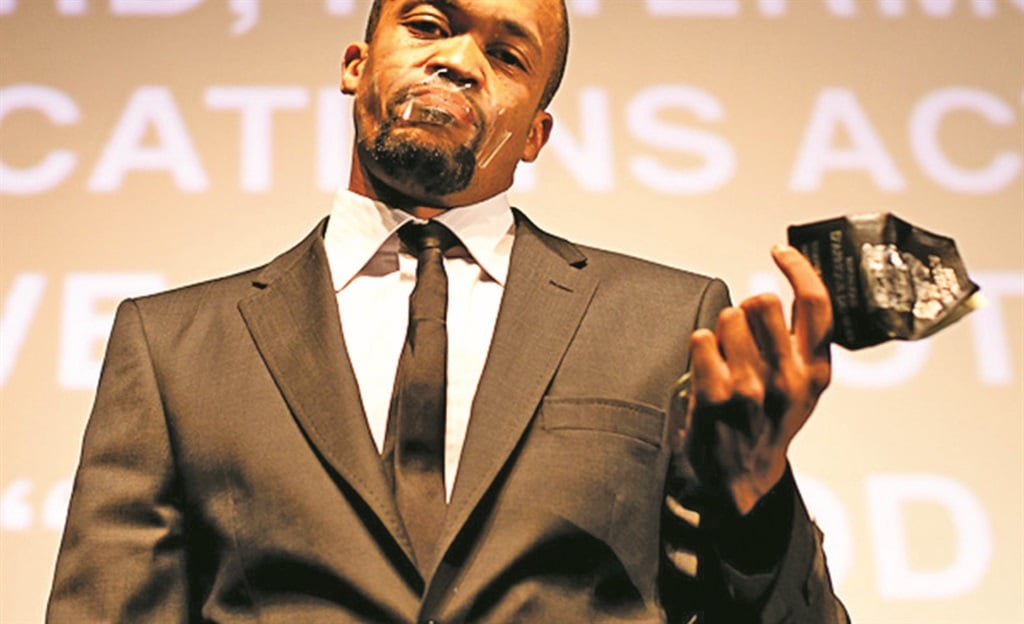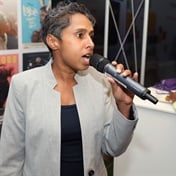
What has gone wrong at the Centre for Creative Arts, the organiser of four major Durban arts festivals? Niren Tolsi heads to the coastal town to find out
"We have been an orchestra without a conductor,” said former Durban International Film Festival (Diff) manager Sarah Dawson with a sigh.
The “orchestra” is the Centre for Creative Arts (CCA), based at the University of KwaZulu-Natal. It has established itself as one of the continent’s foremost cultural hubs through its four annual festivals: Diff, the Jomba dance festival, Poetry Africa, and Time of the Writer, which has attracted authors like Chris Abani and Arundhati Roy.
The centre has been without a permanent director since Peter Rorvik left more than three years ago. This, according to the six former and current CCA employees who spoke to City Press on condition of anonymity, has been one of the main reasons the centre has been struggling. They say it has degenerated. It was a tightly run unit with systems in place and where creativity and independent-mindedness was encouraged, especially in programming content for festivals. Staff were groomed – alumni include Nashen Moodley, the current director of the Sydney Film Festival – and institutional memory was built.
It is now a place of despondence, where its young and energetic staff, many of whom have remained on contracts for years, are consistently “asked to perform duties outside their skills set”, according to one employee.
The university’s inability to fill the director’s position is attributed in some part to its insistence that applicants have, at minimum, a master’s degree, a qualification that prevented Ismail Mahomed, director of the National Arts Festival, from considering the position – despite the university having attempted to head-hunt him in 2014.
“The CCA needs someone with extensive contacts in the arts sector, both locally and internationally; a director with experience of organising budgets and fundraising,” he said.
According to insiders, fundraising has almost ground to a halt. Long-term sponsors such as the eThekwini Municipality are still on board, but sponsorship from organisations such as the National Lottery are unsigned because the director’s position has remained vacant.
Carol Coetzee, CEO of the KwaZulu-Natal Film Commission, which has enjoyed a close working relationship with Diff, said there had been “a leadership gap”, which affected the film festival’s “strategic future positioning”.
She said that “due to the lack of response” and the “late submission of a funding request”, the commission was in discussions with the university about a “reduced contribution for Diff this year”.
The neoliberalisation of the university, which started in earnest in the mid-2000s under the stewardship of the former vice-chancellor, Professor Malegapuru Makgoba, was another factor that contributed to the current state of the CCA, according to several former employees.
At the time, Makgoba had also been accused of stifling academic freedom at the university, causing several respected academics to leave as it streamlined, corporatised and placed further emphasis on money-making courses.
The corporate mind-set, says one former CCA employee, meant university management “never really understood the CCA’s role” outside of the festivals serving as a branding exercise. “We were not bringing in research points, nor were we educating students who would bring in money...”
Another of those City Press spoke to illustrated the dislocate: “I remember submitting a form requesting payment for a film screening ... and receiving a response asking for three quotes for the film. They couldn’t understand why we couldn’t do that.”
That corporatisation was soon coupled with the apparently autocratic style of leadership of deputy-vice-chancellor, Professor Cheryl Potgieter, under whose authority the centre was placed, as a “special project” during the streamlining process.
People au fait with her leadership style described it as “surly” and City Press understands that she was dismissive of attempts to call meetings with CCA staff. In an open letter Dawson described Potgieter as “meddlesome” and “undemocratic”.
Kishore Gorbadan, the university’s director of professional services, whose previous work experience was concentrated in human resources, was appointed acting director at the centre. His role was described by an insider as “negligent, if one was to be kind”.
Then, last month, Potgieter took the unilateral decision to overrule the festival’s advisory panel and ensure that the film Shepherds and Butchers open this year’s film festival on June 16.
This was after the film’s producer Anant Singh had written to Dawson querying the decision and copying Potgieter in on the mail.
He said it was “extremely disconcerting and insulting for me and for my fellow film-makers” that the country’s “premier film festival” had decided not to open with his film. Within 17 minutes Potgieter had responded to Singh’s mail telling him that “your movie will be the opening night film” and that she had discussed the matter with Dawson.
Despite Potgieter’s claim, Dawson says she had not been consulted and appealed for a meeting to discuss the decision. Potgieter – who had offered to meet Singh to discuss his concerns – responded that her decision was final and there was no need to meet Dawson.
According to Dawson, Shepherds and Butchers had been rejected for opening night film by the panel because of the graphic violence – especially to Black bodies – it portrayed. She said it would have been insensitive to expose invited guests to watch such a graphic film – which they may have chosen not to – because of “the profound historical trauma that could be triggered by these images”. The festival had offered the film makers a prime slot for a gala event.
Potgieter’s decision drew widespread condemnation from the arts and culture sphere for its infringing on the festival’s curatorial autonomy – and Dawson’s resignation. (Later a documentary, The Journeymen, would be chosen as opening film by Dawson’s replacement and Singh this week withdrew his film because of unhappiness over its premiere timeslot.)
Rorvik told City Press he had never experienced that sort of interference during his time as CCA director.
One former employee said it was “inevitable” that without a strong director to manage the expectations of partners and fund-raise, the centre would become vulnerable to outside influence, “especially by those with financial interests that that are linked to what we programme”.
While City Press understands that David wa Mahlalela was this week set to take over as CCA director, neither Potgieter nor Gobardan were willing to answer detailed questions about why the post remained vacant for so long or about the CCA’s operations, including the Shepherds and Butchers decision or an ongoing arbitration matter involving CCA project manager Tiny Mungwe which was heard at the Centre for Conciliation, Mediation and Arbitration last week.
Gorbadhan said many of the questions we sent “are dated”.
Potgieter’s only offering was a misplaced email intended for Gorbadhan, which was sent to this reporter. It read: “Kishore to let you know this journalist is biased as he has maybe last week posted Sarah (sic) letter to the press on his fb (sic) page and he highlights how un democratic (sic), meddlesome I have been. So I really have no interest in dealing with this type of journalist. I assume you not reacting to this mail of his.”
City Press understands that the university is moving the CCA from Potgieter’s authority to the stewardship of Professor Donal McCracken. Coetzee confirmed that the university has accepted a proposal by the film commission for the establishment of a non-profit organisation to run Diff.
Head of Pro Helvitia Johannesburg, Joseph Gaylard, who was previously commissioned as an external evaluator to find ways to clarify and entrench the CCA as a resourced entity within the university said the CCA was “very important as an institutional model” which had influenced the setting up of other institutions like the University of Cape Town’s Gordon Institute of Performing and Creative Arts.
He said it was not surprising that the CCA filled an “ambiguous” position with the university structure and while “the present moment is clearly not the high water mark of institutional vision [for the university] … the most recent edition of Time of the Writer under the curation of Thando Mgqolozana, by a lot of solid accounts, managed to move in a substantively and important new direction conceptually for the CCA… which still makes the institution relevant now and hopefully in the future.”




 Publications
Publications
 Partners
Partners








